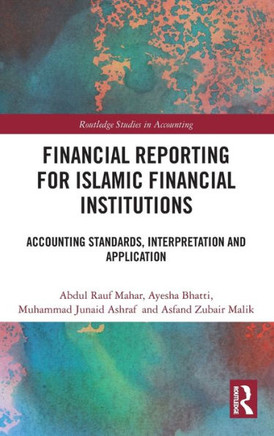
Routledge
Financial Reporting for Islamic Financial Institutions : Accounting Standards, Interpretation and Application
Product Code:
9781032464022
ISBN13:
9781032464022
Condition:
New
$188.63

Financial Reporting for Islamic Financial Institutions : Accounting Standards, Interpretation and Application
$188.63
Mainstream accounting rules, namely International Financial Reporting Standards (IFRS), used in conventional banking, employ financial logics and principles which are at odds with Shariah and therefore unsuitable for reporting the results of Islamic banks. The book is an effort to explain the Islamic accounting principles and practices for Islamic Financial institutions and to juxtapose them to mainstream accounting principles in a simple and practical manner. The book begins with an overview of the Islamic Finance environment, the rationale for Islamic accounting and a brief introduction of AAOIFI (Accounting and Auditing Organization for Islamic Financial Institutions), the professional body responsible for the issuance of Islamic accounting standards. The main features of the AAOIFI Conceptual Framework and its comparison with IFRS framework are covered in Chapter 2. Chapters 3-9 cover the accounting treatment of the major Islamic finance products including trade-based (Murabaha, Salam and Istisna'a), rental-based (Ijarah) and risk-sharing based products (Mudarabah and Musharakah). Given the significance and complexity of Islamic bonds (Sukuk) for the Islamic finance industry, Chapter 10 discusses the basic accounting and reporting issues vis-?vis Sukuk, leaving more complex issues for advanced texts on the topic. Zakah accounting (charity) and provisions and impairments are covered in Chapters 11 and 12. The chapters are arranged so that they start with a discussion of the product itself, followed by the AAOIFI accounting treatment and ending with the IFRS perspective. Each chapter begins with the learning objectives and a cover story and closes with a summary of the learning objectives. To facilitate the learning of readers, each chapter contains a glossary of the terms introduced as well as end of chapter multiple choice questions. In addition, each chapter includes practical insights and concept checks to enhance and test the understanding of the readers. This will be a useful guide for students, academics and practitioners concerned with the subject of financial reporting in Islamic Institutions.
| Author: Abdul Rauf Mahar, Ayesha Bhatti, Asfand Zubair Malik, Muhammad Junaid Ashraf |
| Publisher: Routledge |
| Publication Date: Jan 19, 2024 |
| Number of Pages: NA pages |
| Language: English |
| Binding: Hardcover |
| ISBN-10: 103246402X |
| ISBN-13: 9781032464022 |





